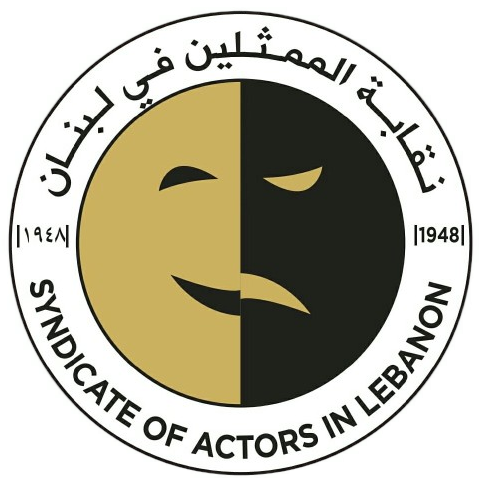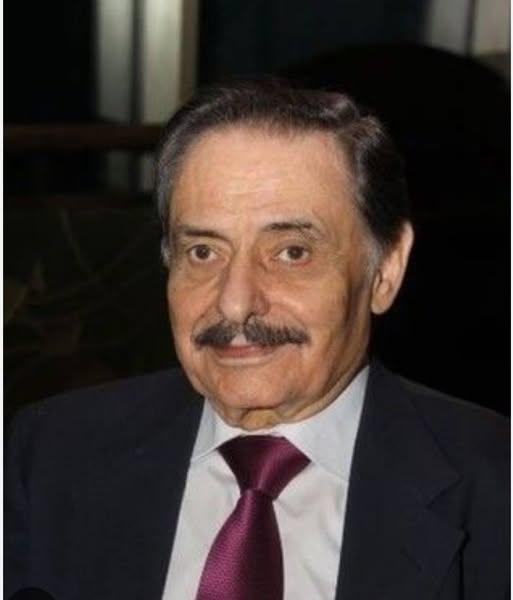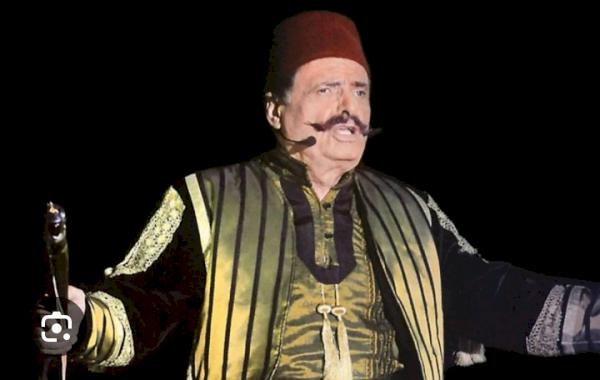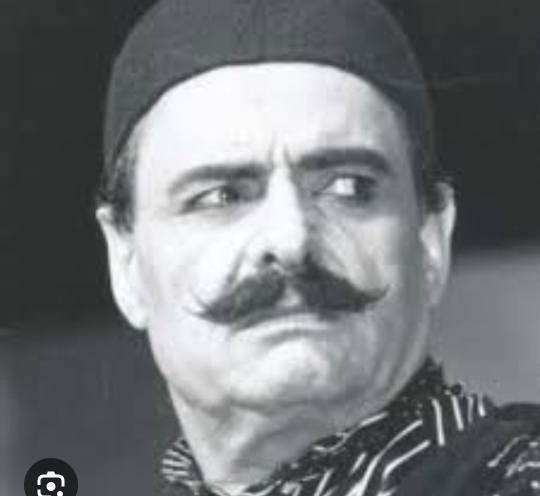The Lebanese Actors' Syndicate mourns former president Antoine Kerbaj
The great artist and former president of the Lebanese Actors' Syndicate (2005–2009), Antoine Kerbaj, has passed away today, leaving behind a rich artistic legacy that remains a school for generations to come — enduring through the love of the people for him and his art.
The Lebanese Actors' Syndicate mourns its former president Antoine Kerbaj, and extends its condolences to the Lebanese and Arab public.
A towering presence like Mount Sannine
From the steadfastness of Mount Sannine, his character and the radiance of his voice emerged. The destiny of great theater and television figures was his own — he took on their fates, bore their names, and replaced his own with theirs, losing himself between one role and another. He lived their sins, their madness, their deaths, and then returned from the magical chemistry of the stage back to life — his life — in front of the audience’s applause.
He is the memory of Lebanon. He is Antoine Kerbaj — man of theater and television — the actor to whom audiences always rose with standing ovations.
An artistic life that began at ten years old
His love for acting surfaced at the age of ten, when he would gather neighborhood children and relatives to perform scenes in front of them. The strong stage presence, the deep voice, the commanding figure on stage — all began in Ras Beirut, where he attended public elementary school, then continued to the Teachers' College and taught history and geography.
Later, he pursued a degree in history at Saint Joseph University, during which time he revived the long-dormant theater of the law faculty.
Through his friend Amin Zaydan, he met artist Monir Abou Debs, who was part of the Sorbonne troupe. At the invitation of the Baalbeck International Festival committee in the early 1960s, Monir was brought to Lebanon to establish the first acting institute, called the School of Modern Theater. Antoine learned from him that acting is a cultural discipline acquired through study.
Together, they founded the Modern Theater Troupe, which played a leading role in the evolution of theater in Lebanon and the Arab world.
From Baalbeck to the Mediterranean and beyond
Thanks to the Baalbeck International Festival, Kerbaj and the troupe toured internationally and participated in Mediterranean Theater Festivals across Europe, Africa, and Asia.
In 1966, he married author and journalist Laure Gharib, and they had three children: Walid, Rola, and Mazen.
In 1967, he founded his own theater company and soon began his lifelong artistic partnership with the Rahbani Brothers, creating a cultural and artistic identity for Lebanon that left an international imprint.
Iconic Theater Roles
Antoine Kerbaj’s stage work was legendary. Some of his most iconic performances include:
-
Macbeth – Shakespeare – Jbeil Festival I, 1962
-
Orestes – The Flies by Sartre – Jbeil Festival II, 1962
-
The King – Exit the King by Ionesco – Beirut, Cairo, Baghdad, Damascus, 1965
-
Oedipus – Oedipus Rex by Sophocles – Beirut and Paris, 1966
-
The Inspector – The Physicists by Dürrenmatt – Beirut and Amman, 1967
-
The King – Hamlet by Shakespeare – Baalbeck International Festival
-
Faust – Faust by Goethe – 1968, in various historical sites across Lebanon
-
The Clown – The Clown by Syrian poet Mohammad Al-Maghout, directed by Yaacoub El Chadraoui
-
Abou Ali – Abou Ali Al Asmarani – Turkish writer Khaldoun Thaer, with Nidal Al Achkar, directed by Berge Vazlian, 1974
He also produced two of his own plays: Abtal w Haramiyyeh (Heroes and Thieves) and Amrak Sayidna (Your Command, Sir), with music composed by Ziad Rahbani.
With the Rahbani Brothers
In Rahbani musical plays, his roles included:
-
"The Smuggler" in Yaish Yaish (1970, Beirut)
-
"The Governor" in Sah el Nom (1971, Beirut and Damascus)
-
"Fatek el Motsallit" in Jibal al-Sawwan (1972, Baalbeck & Damascus)
-
"King Ghayboun" in Natourat al-Mafateeh (1972, Baalbeck & Damascus)
-
"The Thief" in Al Mahatta (1974, Beirut)
-
"Roman Commander" in Petra (1977, Amman, Damascus, Beirut)
Later with Mansour Rahbani, he starred as:
-
"Captain Assaf" in Summer 840 (Casino du Liban, 1987)
-
"King Raad III" in Hukm el Rayan (2004–2005, Beiteddine Festival, Damascus, Aleppo, Doha)
Also featured in:
-
Beleil Qamar with Caracalla Dance Theatre (2000 – Casino du Liban, Montreal, Las Vegas)
-
Alf Layle w Layle (2002–2003 – Dubai Media City, Baalbeck Festival, London)
-
Nokaddim Lakoum Watan (We Present to You a Homeland), where he played Patriarch Howayek, written by Antoine Ghindar and directed by Raymond Gebara – presented at Casino du Liban in 2012
From Theater to Television
Kerbaj transitioned to television and delivered unforgettable performances, becoming a household name:
-
Jean Valjean in Les Misérables – Directed by Bassem Nassar (Tele Liban, 1974)
-
Lead role in Diala with Hind Abi Lamma – Directed by Antoine Remy (1976)
-
The Inspector in Liman Toghanne Al Toyour – with Noha El Khatib, directed by Elie Saadeh (1976)
-
Barbar Agha in Barbar Agha – Written by Antoine Ghindar, directed by Bassem Nassar (1979)
Cinema Work
Kerbaj also played leading roles in several Lebanese films, including:
-
Nisaa' fi Khatar (Women in Danger) with Iman – Directed by Samir El Ghoussaini (1982)
-
Al Safqa (The Deal) with Rola Hamadeh – Directed by Samir El Ghoussaini (1984)
Antoine Kerbaj cannot be summed up in a few lines. He was a titan of Lebanese art, a pillar of theater, a master of voice and presence — a man whose impact on generations of artists will never fade.
May his memory remain a source of inspiration, pride, and eternal artistic light.



